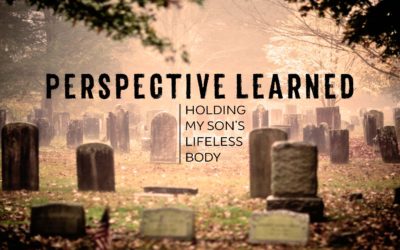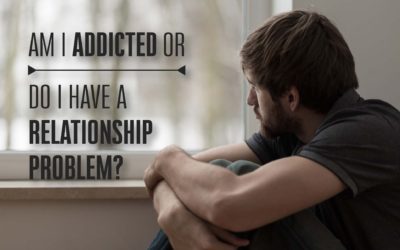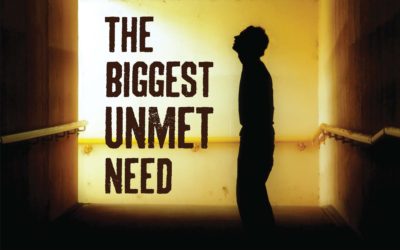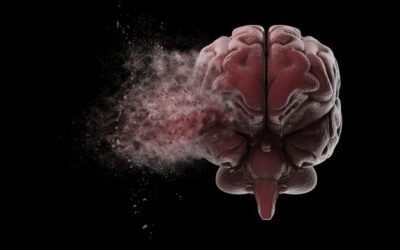Highlights
-
Life is hard. There is no way around this. Life will not always be wonderful, and recognizing that fact will help you through the not-so-wonderful times.
-
There are things you can control that will make your life better. Focus on these things. Pay attention to the basics of your life.
-
Asking what you want and why you want it can help you define important goals that you need to set.
- Creating SMART goals will help keep you motivated to stay on track.
SETTING GOALS
We all know that life is hard.
We live, die, get sick.
We have challenges all around us:
with work
with health
with relationships
with finances
this list could go on.
On top of that, those around us have challenges. Family, friends, co-workers, strangers. All around us, everyday, there is evidence that life is hard.
If we don’t embrace that reality, you’re surprised when things happened that hard. I’m usually not surprised when it happens because I know that, in the midst of all of the good things that are going to happen, there are going to be some bad things that are going to happen. We can’t control that.
But we can control our response to those things.
I need to focus on me, and my reaction, not to the external things than happen.
Focus on what you can control.
Controlling What You Can Control
I want to give you some tips on how to control what you can control. That is, how to set some really intelligent goals That you’ll begin working toward.
But first, I must say this: Goals are so important. And to understand the place of goals in The Mindful Habit System, there are a few basic things that we cover first.
We talk a lot about the Habit Cycle: Trigger > Thought > Action.
We talk about how those triggers are biologically hardwired and they’re not going away. You have to learn to use those triggers to create positive results.
We talk about the space between Thought > Action, that quarter of a second that you usually don’t even recognize. Do everything that you can possibly do to increase thai space so you don’t habitually react the way you’ve been reacting.
You’ve got to change your relationship with your thoughts. One of the ways we do this is by setting goals. When you have a clear vision of where and why you’re going in your six major life areas, you can look forward to success. I have a podcast and blog on these six major life areas and we go into them in depth in The Mindful Habit Program.
Another metric we use, and that I’ve mentioned in my podcast and blog before, is The Fundamental Five. These five basic areas of life are critical to our success, therefore we must pay attention to them when setting goals.
I have never had a client executing on these five areas come back to me and say, “Hey, I’m slipping.”
I have had people come back to me and say, “Hey, I lost my way. I need some help. I need some guidance.” The first thing I ask them is, “How are you doing with your Fundamental Five?”
Why is this related to healthy sexuality? What does this have to do with your porn addiction, with your sex addiction? Everything. Because when you have goals and when you’re taking care of yourself, you are honoring the golden rule of behavior modification, which is:
To break a habit, you have to make a habit.
That means your success in not doing the thing is a function of you doing something else.
Having precise goals that point you toward the person you want to be empowers you to stay on track. A person who is living a life where they are honoring and respecting their mind, body, and spirit with goals is not sitting in their bathroom jerking off for hours a day. It doesn’t work like that.
Create Strategic, Measurable Goals
Strategic goals are goals that chart your course. The analogy that I like to use is that you are the captain of a ship and you choose, in your strategic planning, that you want the ship to sail from point A to point B. How you get from point A to point B, those are tactical goals. Those are the details; how you execute on that goal to bring you from point A to point B.
You need to have a strategic plan for the following six key life areas in your life:
-
Career
-
Finances
-
Health
-
Hobbies
-
Relationships
-
Spirituality (as you define it)
Think about the next six months. Let’s create some attainable goals within the next period. If you are successful, what does your life look like in six months? Define that for each one of those categories.
In each of those six areas, ask yourself:
- What do I want to accomplish?
- Why do I want to accomplish it?
Number 1 will come fairly easy. Number 2 is critical.
“Why” is important because why is your fuel. Why is the passion. Why is the fire. Why do you plan on utilizing and dedicating your most precious resource of time to the achievement and advancement of the goal in your answer number 1?
Why is this important to you? You need to know your why.
Now, let’s talk about answering question 1. In answering number 1, you are going to create SMART goals. SMART stands for:
SPECIFIC
MEASURABLE
ATTAINABLE
RELEVANT
TIME BOUND
S = Specific
Is the goal specific? Let’s say you want to lose weight. Is that specific? No. Not specific enough. I know if I lose one pound I accomplished the goal. If I lose 100 pounds I accomplished the goal. So, your goals and the answer to questions need to be specific. Set a goal of losing 10 pounds, 20 pounds, etc. Be specific.
M = Measurable
What if you say “I want to feel better.” Is that a measurable goal? No. But, you can identify the attributes in your life that make you happy (better) and then craft specific measurable goals around that. Pack to my weight loss example. Saying I want to lose 10 pounds is measurable. All I have to do is get on the scales today, and then get on the scales later to see how much that number has changed. That’s measurable.
A = Attainable
This is one of the most important aspects of goal setting. Set a goal that is attainable, that is, something that you can actually reach. If you want to lose weight, don’t set an initial goal of losing all of the weight you want to lose. Start small and attain it! Start with lose 10 pounds, then set a new goal. Don’t start with a goal of running a mile everyday, start with a goal of putting your running shoes on and standing outside everyday. Then build from there.
R = Relevant
Are these goals that you’re setting relevant to your strategic plan? Are they outliers? Is it relevant to your overarching plan in your life? Does it make sense?
T =Time bound
Your goal needs to be time bound. They must have a deadline. If not, they’re really just dreams. Set a goal of losing 10 pounds by a specific date. Set a goal of starting to jog to the end of the block by the end of the month. Set a goal of cooking one home cooked meal each week. As long as they are SMART goals, they will help drive you toward success.
Your assignment is spend 45 minutes creating a strategic plan in those six key life areas. That strategic plan defines what it is you want to accomplish and why you want to accomplish. What does it mean to you? Where is the fire? Where is the passion? Why do you want to do that?
Interview with a Mindful Porn Addict
Highlights Sex is not a topic of conversation in most modern homes, which leads to a great amount of guilt and shame around unhealthy sexuality Online porn can get its hooks in us and it’s hard to break free Mindfulness can help you regain control of your life and...
Perspective Learned by Holding My Son’s Lifeless Body
Summary Craig shares a deeply personal story when his 13 year-old son collapsed - lying lifeless in his body, Craig asked himself, “Where’s the gift?” And saw the gift was love - for the deep pain wouldn’t exist but for love. Listen how this traumatic event...
Am I Addicted or Do I Have A Relationship Problem?
Highlights What’s the difference between addiction and relationship problem? When does compulsive porn use become an addiction? Two examples help illustrate why the ‘porn addiction’ label is not helpful Am I Addicted or Do I Have A Relationship Problem? This is an...
Interview With a Young Christian Ex-Porn Addict
Highlights Craig interviews Joseph, a young Christian who is an ex-porn addict Joseph’s porn use started around age 12 and escalated during early teens Sex is often not a topic of conversation in the homes of young porn users Joseph found help and is creating a great...
Elevating and Evolving Your Accountability: How to be accountable to YOU!
Highlights Level one accountability focuses on reporting To truly be successful, we need level two accountability, which focuses ownership that drives you to create results. Second level accountability is only possible through self-love, operationalized through...
Mindfulness Will Set You Free
Highlights What is the Mindful part of The Mindful Habit System? Mindfulness is essentially being in the present moment, on purpose, without judgement. Two kinds of mindfulness, in-the-moment and practice. A simple exercise of practicing mindfulness can increase your...
Know Your Top Unmet Needs “Cure” Your Sex Addiction
In this episode of “Sex Addictions and Porn Afflictions,” Craig Perra, certified professional coach and Founder of the “Mindful Habit System to End Compulsive Behavior,” Craig talks about the largest unmet need that causes people to struggle with addiction: love.
Christians and Porn Addiction: Interview with Porn Free Radio’s Matt Dobschuetz
In this episode of “Sex Addictions and Porn Afflictions,” Craig Perra, certified professional coach and Founder of the “Mindful Habit System to End Compulsive Behavior,” talks to Matt Dobschuetz, coach and host of Pornfree Radio, a weekly podcast for motivated Christian men who want to align their sexuality with their spiritual beliefs.
Backpage Ends Escort Prostitution Page: Sobriety, Sanity & Success
HIGHLIGHTS Backpage has ended it's Protitution page Compulsive Sexual Behavior is a hobby By treating our addiction as a hobby, we can identify the positive aspects of our behavior Our negative behavior is a function of our unmet needs Creating new hobbies that help...
The Opposite of Addiction is Connection
Highlights Just not doing ‘the thing’ is not enough All negative behavior is a result of our unmet needs We need to create a personal infrastructure that shifts our energy and focus The Opposite of Addition is Connection To break a habit, you have to make a habit. You...













